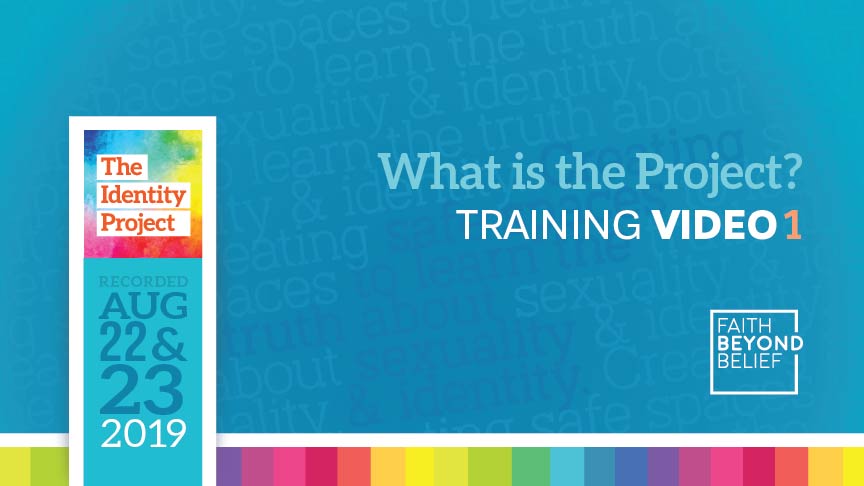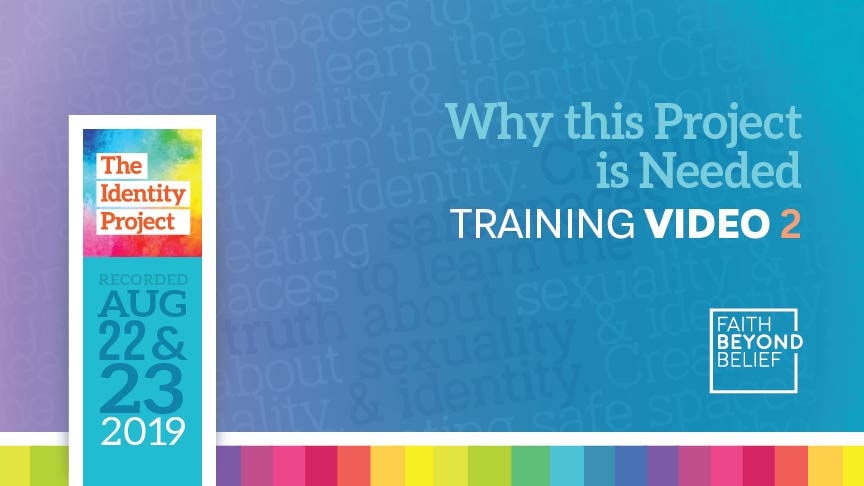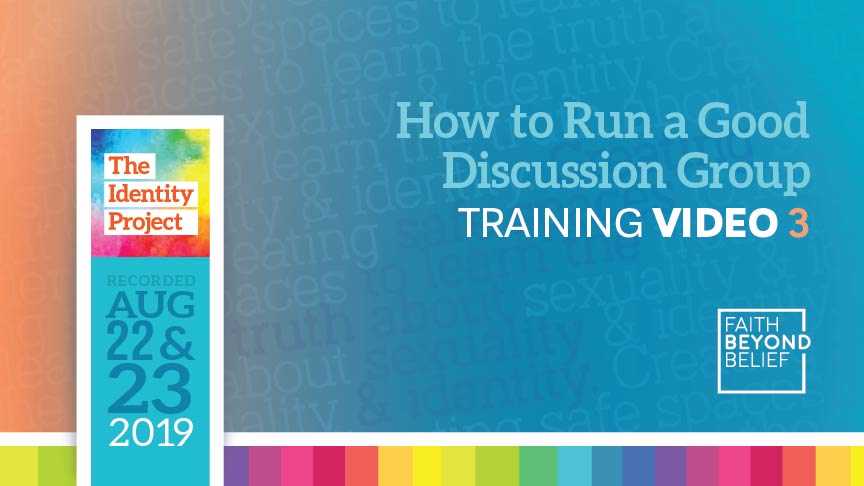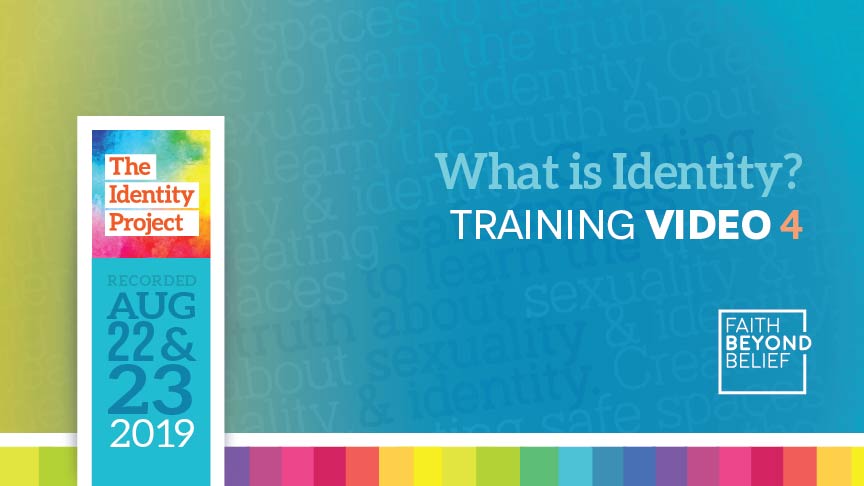How the Discussions Work
Discussion Leaders need to work with their school or church to implement the following protocols for starting an Identity Project group.
At a church you can incorporate the project as part of your youth group programming. At a school you should follow our guidelines on how to establish a discussion group, as well as how to include the IP in your school curriculum. Faith Beyond Belief can help provide tools for you to do this.
One of the key ways to prepare for the Project is to make sure that students, parents, principals, pastors, and other interested persons know what the project is about. This project is not meant to keep adults, especially parents, out of the discussion. Rather, it is meant to help young people learn a biblical view of sexuality.
Before each gathering, leader should go through the lesson, including the videos. All the videos have been vetted but some videos are less appropriate for younger students. Leaders need to be discerning about what videos their students can handle. Make sure all the necessary tools, such as a projector, are set up in your meeting room.
When the discussion group meets, set a godly tone. Make sure everyone knows they are welcome and that they can participate in the discussion. However, this does not mean every opinion or idea is right or helpful. As leaders, you should model grace and truth in everything you say and do.
Leaders should start by introducing themselves, and then encourage everyone in the group to share their first name. Let the students know they are free to ask off-topic questions at a set time during the meeting, such as at the end of the meeting. Students should know that IP gatherings provide a safe and welcoming place for all their questions and concerns. To that end, leaders need to explain the confidentiality rules for everyone who attends (see below).
Leaders ought to follow the lesson plan, allowing for the need to vary the questions you will raise based on who is in attendance. Discussions will include goals, questions for discussion, and references for more resources on particular topics.
When the lessons are done, give students a chance to ask questions about the lesson of that day or previous days. If questions come up about upcoming topics, leaders should let students know that the group will be discussing those questions in the near future.
If a student asks to talk one-on-one with a leader, the leader must remind them about the agreed upon confidentiality standards. Because of the nature of the discussions, please exercise discretion about when and where private conversations take place. Meeting students outside the group to discuss issues raised in group is strongly discouraged unless leaders already have a church or family connection with the student and parents have given permission. Exemptions can be made for extreme cases, but in such cases, leaders must follow the procedures established by the school or church for interacting with minors.
Remember, Discussion Leaders are not professional counselors or doctors. Nor should they be expected to serve as such. Rather, leaders should connect students with the resources provided in this document or they may connect students with professional help, if necessary.
Where should we meet?
Depending on how the program is used at your school or church, ensure that the meeting place is well advertised. School meetings should occur in a place where you can have confidential conversations with your group.
What you’ll need
A laptop with projector and speakers or a TV: Each discussion will centre around videos clips, discussion questions and other tools to help your youth understand the issues. Videos will include clips from TV shows, social media posts and other relevant tools to help students understand the biblical worldview and the cultural context in which Christians live.
Paper and pens for writing notes
A bible for referencing materials discussed
Other reference materials such as relevant books and articles
How often should groups meet?
Groups need to meet regularly. We encourage you to meet at least once a month, though more meetings would allow you to cover all 13 topics in a school year. Each session can also be taught within a span of an hour and a half. Each session can also be broken up into two sessions, giving you enough resources to meet weekly over a school year.
Nature of the groups
Depending on the number of students involved, you may want to organize more than one group. Discussion groups can be organized by age or gender. You can create one group for boys lead by a male volunteer and one for girls lead by a female volunteer. Groups can also be separated by age. For example, one group for junior high and one for senior high. The questions and resources in your booklet are written so you can make them age appropriate.
Confidentiality
Most schools and youth groups already have confidentiality clauses to protect students, teachers and parents, and Discussion Leaders should adhere to the rules of the organization they represent. Especially considering the delicate nature of the discussion topics, students should know they can trust that the group will keep discussions confidential. We strongly believe that students are best supported when every member of the community is part of the process. Discussion Leaders should explain to students that:
Students are welcome to share and discuss personal issues, but leaders are not professional counselors, unless they are already chaplains or school counselors who have the needed training.
What is shared at meetings is confidential. However, students participating in the discussion group know that Discussion Leaders are obligated to tell parents if a child could potentially harm themselves or is already harming themselves or others.
The Identity Project is designed to integrate parents into the discussion appropriately. For example, if a student discusses personally struggling with same-sex attraction, Discussion Leaders will work with that student on how to have that discussion with their parents in the future. We believe students and parents should deal with these issues together.
Leaders should also be discrete about sharing their own personal struggles or issues with students. Adults also have to grapple with many of the issues discussed, such as pornography, sexual identity and temptation. The Identity Project does not seek to prevent leaders sharing their personal testimony, but we do advise caution. For example, it is strongly encouraged that leaders first talk to their principal or pastor before disclosing any personal sexual information to students. And where biographical information is shared, the leader must be certain that the students are mature enough to handle the information and that they understand the confidentiality rules of the meeting.
Naming the group
Each group is unique and should be named according to its purpose in your school or group. Naming the group, the “Identity Project” group, is also a good way to focus your discussions on the most important issues your group will discuss.
Implementation
In order to implement the Identity Project, ministries and organizations should follow these steps to maximize the effectiveness of the project:
1. Introduce the project to the leadership team at your school or church.
FBB believes this project must be implemented with the full support of the community. Unlike government-mandated clubs, we want to implement the program with the understanding and support of your Christian community. The topics of sexuality and gender are complicated and we believe we can help create a safe and caring community for all of your students and members when everyone is involved in these discussions. This includes parents, teachers and students.
2. Introduce the project to your educators such as teachers or youth pastors.
Often these are the people who are interacting with youth regularly and have opportunities to discuss these issues with them. It is important to have your leadership on board, prepared to answer the tough questions from a consistent Biblical framework.
3. Introduce the project to stakeholders such as parents, church members and organizational members.
We want to be transparent and encourage discussion to continue at home and in the church. The topics covered can at times be difficult. Students are best able to tackle these issues when they know that the most influential people in their lives are supporting them and are willing to tackle tough problems with them.
4. Introduce the project to direct participants, such as students or youth group members.
It is important for youth to know that they can discuss their concerns in a safe place where their voice will be heard. Our youth are facing conversations about sexuality, homosexuality, pornography, sex before marriage, etc., at a younger and younger age. As such, we want tooffer training to prepare them to address what society claims as normal and compare it to what Scripture says on the same matter.
5. Choose volunteers such as a youth pastor, teacher or parent to help lead your discussion group.
Because your group(s) will be led by volunteers, all group leaders should be endorsed by a local pastor and must be approved by the relevant principal and school board. This endorsement should be reaffirmed every year. Be sure to follow all ministry protocols established by related churches or schools.
Checklist
To begin a discussion group at your school, make sure you check off the items on this list.
Purchase the Identity Project Membership and log on to identityproject.ca
Choose a leader for the program from your community. Be sure to follow your church or school policies for individuals working with minors, ie: criminal record check, etc.
Review our training videos.
Communicate with parents and youth. Provide information on the sessions to ensure open communication with parents. The Identity Project is designed to work with families to create strong relationships and open communication within the family unit.





